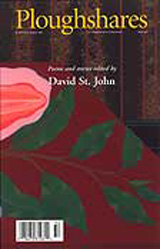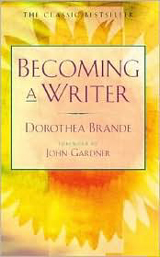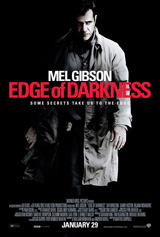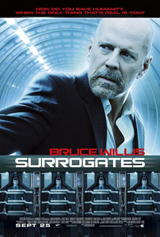Two days in to our screenwriting workshop with Antonia Bird (Ravenous) and Marcella Forster, it’s clear that we’ll be engaging the material with a lot of in-class exercises. The course started yesterday right away with a questionnaire to help us identify our learning styles.
A testament to the usefulness of the exercise was that universally the students found their diagnoses to be spot-on—and were enthusiastic about the verdicts. We theorists quickly bonded, as did the other groups, and the running joke among the largest group is that they need a moment to “reflect.”
More than fun and games, though, we were next asked to consider how these labels help us to understand our writing.
For example, I’m a theorist. (Or, more accurately, a theorist-reflector.) I “have a methodical and logical approach to most things,” and, yes, in my writing I like to have it worked out in my head before any words go on the page. I definitely respond to structure. Making lists of things to do eases my anxiety. And I am constantly breaking big problems down into smaller, manageable pieces so that I can approach them methodically and logically.
I “like to analyze ideas in a detached way, asking questions and making mental connections until [I] have integrated new theories into a comprehensive overview.” Indeed, I prefer to listen to lectures and take notes for later review and incorporation into my own work. I am “not usually happy with intuitive thinking or subjective judgments.” Oh, yes, that’s absolutely true: there has to be a reason for doing something, a rule!
I am a perfectionist “with set ways of doing things,” which is probably why I find this blog format such a challenge—I am uncomfortable clacking out casual prose and posting it for the world to see!
Finally, I “pay attention to detail, which can be of great benefit—or may serve to slow [me] down and stand in the way of creativity.” I definitely am a slow writer, and at times I find my work emotionally cold.
Now it’s your turn. What’s your learning style, and, more importantly, how does it help you to understand your writing?
Questionnaire
1. Do you find it easy to meet new people and make friends?
2. Are you cautious and thoughtful?
3. Do you get bored easily?
4. Are you a practical “hands-on” kind of person?
5. Do you like to try things out for yourself?
6. Do friends consider you to be a good listener?
7. Do you have clear ideas about the best way to do things?
8. Do you relish being the center of attention?
9. Are you a bit of a daydreamer?
10. Do you keep lists of things to do?
11. Do you like to experiment to find the best way to do things?
12. Do you prefer to think things out logically?
13. Do you like to concentrate on one thing at a time?
14. Do people sometimes think of you as shy and quiet?
15. Are you a bit of a perfectionist?
16. Are you usually quite enthusiastic about life?
17. Would you rather “get on with the job” than talk about it?
18. Do you often notice things that other people do not?
19. Do you act first and then think about consequences later?
20. Do you like to have everything “in its proper place”?
21. Do you ask lots of questions?
22. Do you like to think things through before getting involved?
23. Do you enjoy trying out new things?
24. Do you like the challenge of having a problem to solve?
Scoring
Please circle the numbers of the questions you answered with a “Yes” and then add up the number of circles in each row to give your total row score.
Pragmatist: 4, 5, 11, 13, 17, 24; total =
Activist: 1, 3, 8, 16, 19, 23; total =
Reflector: 2, 6, 9, 14, 18, 22; total =
Theorist: 7, 10, 12, 15, 20, 21; total =
Learning Styles
PRAGMATISTS enjoy new theories and techniques. They can often see instant applications and are keen to try out their ideas in practice. They enjoy the challenge of having a problem to solve and quickly come up with practical solutions. They are rather impatient with long-winded planning and discussion, preferring to “get on with the job.” They are tightly focused-concentrating on the job in hand until it is completed. This can sometimes result in tunnel vision. Pragmatists are often task-oriented rather than people oriented.
ACTIVISTS are “here and now” people who are keen to try anything once. They tend to act first and think about the problems afterwards (if at all). They are gregarious people who enjoy being the center of attention. They are excited by anything lively and vibrant but quickly get bored with the routine and mundane. They are creative in their thinking and come up with innovative solutions to problems but lose interest with the implementation or long term consolidation of plans.
REFLECTORS like time and space to think things through carefully before coming to a conclusion. They listen carefully and gather information to help them make rational and considered judgments. They prefer to act as observers rather than be involved in the thick of things. Because they often adopt a low profile, they may be thought of quiet or shy. Nevertheless, “still waters run deep,” and their considered opinions should not be ignored. Reflectors often find it difficult to make decisions.
THEORISTS have a methodical and logical approach to most things. They like to analyze ideas in a detached way, asking questions and making mental connections until they have integrated new theories into a comprehensive overview. They are not usually happy with intuitive thinking or subjective judgments. They are often perfectionists with set ways of doing things. Theorists pay attention to detail, which can be of great benefit—or may serve to slow them down and stand in the way of creativity.
Reference
Fewings, John, Humberside Training and Enterprise Council, 1999.
Caught in the ’Net
Writer’s Digest releases 2008’s 101 Best Sites for writers.







